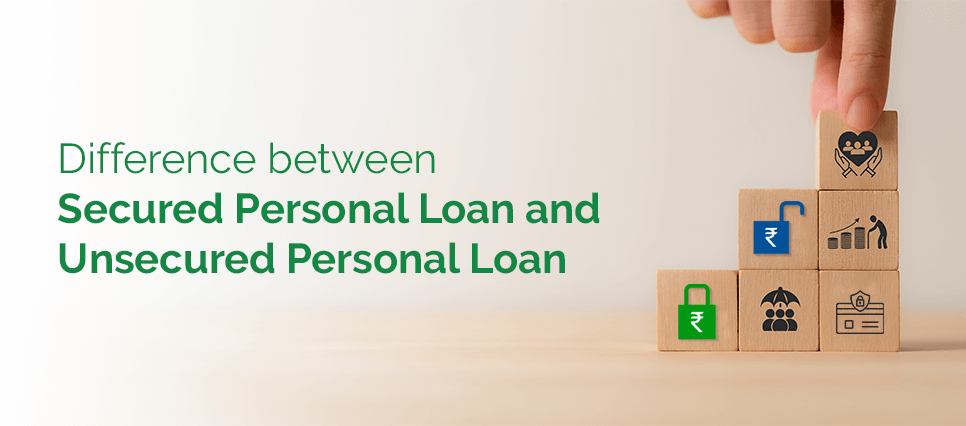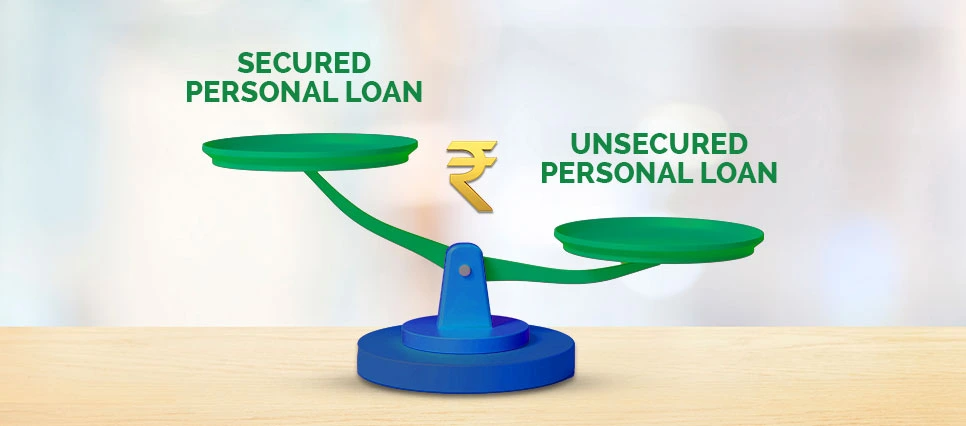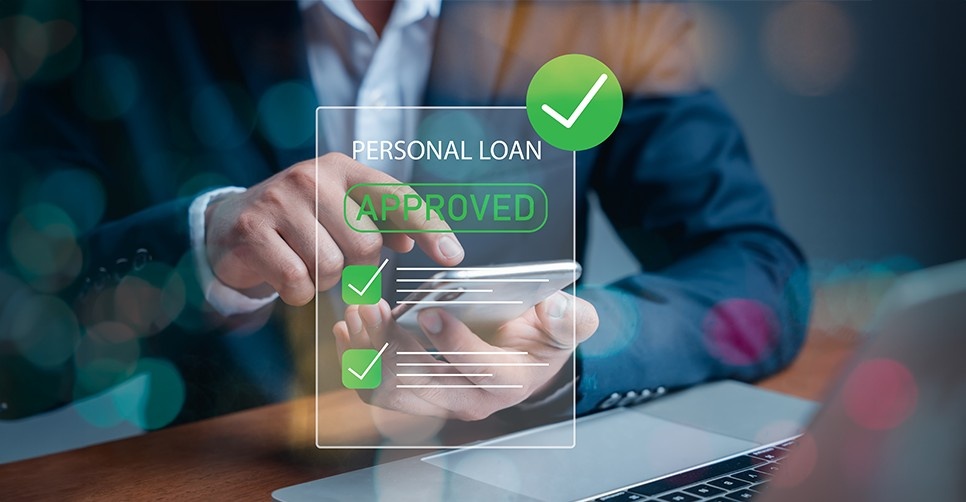When it comes to money matters, getting the right loan is important for your financial success.
You have two main choices for Loans: Secured Personal Loan and an Unsecured Personal Loan
Secured Loans require collaterals, such as property or assets, to guarantee the loan amount. In contrast, Unsecured Loans do not require any collaterals, instead, they rely on your credit or repayment history and income source, for approval. Both have advantages and disadvantages, so knowing and understanding the differences is important.
First you should carefully consider your credit history, financial stability, borrowing needs, and risk tolerance to decide whether to go for a Secured or Unsecured Personal Loan. These factors will help you select the most suitable loan.
Read more as we explore both types of Personal Loans and get ready to boost your confidence in managing your money!

What is an Unsecured Personal Loan?
An Unsecured Personal Loan is a type of loan where you don’t have to offer any valuable assets like your house or car, as a guarantee. Unsecured Personal Loan lenders evaluate your credit, income levels, and your ability to repay the balance. Your credit and cashflows will help you get the Unsecured Loan.
A Personal Loan can be used for almost any purpose like debt consolidation, home improvement, unexpected expenses, travelling expenses and many more, without much hassle.
Check out our TVS Credit Saathi App or website, and apply for our instant Personal Loans without the need for collaterals. This convenient option allows you to secure a Loan of your desired amount anytime, anywhere. Whether you need funds for a medical emergency, home renovation project, or educational expenses, Personal Loans offered by us, can provide the financial support you require without the hassle of pledging any collateral.
Exploring Unsecured Personal Loans: What you need to know:
Pros:
- No collateral required: You do not have to pledge your assets for the loan
- Quick approval process: Unsecured Personal Loans have quicker approvals since there is no need for collateral evaluation
- Versatile use: Funds from Personal Loans can be used for a wide range of purposes, giving the borrowers flexibility
Cons:
- Higher interest rates: Unsecured Personal Loans typically have higher interest rates than Secured Personal Loans since lenders anticipate more risk
- Limited borrowing amounts: Without collateral, lenders may limit the amount borrowers can take
- Stricter eligibility criteria: Borrowers need a strong credit history and steady income to qualify for Unsecured Personal Loans
What is a Secured Personal Loan?
A Secured Personal Loan is a type of loan that requires a valuable asset, such as a home, car, or deposit, to be pledged. This asset is called a collateral. If the borrower is unable to repay the Loan, under any circumstances, the lender can collect the collateral. For example, if you get a Car Loan, and can’t keep up with the payments, the lender can seize on your car. Thus, Secured Personal Loans are less risky for lenders because they have something to rely on if you can’t pay.
Understanding Secured Personal Loans
Pros:
- Lower interest rates: Secured Personal Loans usually come with lower interest rates compared to Unsecured Personal Loans since lenders have collateral to reduce risk
- Higher borrowing amounts: Borrowers with collateral may qualify for a higher Loan amount than they could with Unsecured Loans
- Easier approval for borrowers new to credit: Secured Personal Loans may be easier to obtain for borrowers with less-than-perfect credit score since collateral reduces the lender’s risk
Cons:
- Risk of asset loss: If the person who borrowed the money can’t pay it back, they might lose whatever they put up as security for the Loan
- Longer approval process: Secured Personal Loans may have a more extended approval process due to collateral evaluation and verification
- Limited use of funds: Secured Personal Loans are typically designated for specific purposes, such as purchasing a home or car, limiting their use

Still, confused about the difference between a Secured Personal Loan and an Unsecured Personal Loan? Read along:
When choosing between a Secured and Unsecured Personal Loan, it is important to consider:
- Your financial situation
- What do you need to borrow for
- How much risk are you willing to take
Unsecured Personal Loans are flexible and can be approved quickly, but they usually come with higher interest rates and strict rules for those who can obtain them. On the other hand, Secured Personal Loans have lower interest rates and allow you to borrow more, but there is a chance you could lose something valuable if you can’t pay it back.
In the end, the right choice depends on what is best for you. If you have a great credit score and need a Loan for something specific, an Unsecured Loan might be the best option. If you have assets you can put up as collateral and want lower rates, a Secured Loan could be the way to go. Now, download our TVS Credit Saathi App in just a few minutes with flexible Loan repayment options, and tenures, and enjoy a seamless, 100% paperless process.
FAQs
Is it better to get a Secured or Unsecured Personal Loan?
The choice between a Secured and Unsecured Personal Loan is based on your financial situation, borrowing needs, and risk capacity. Determine the factors such as interest rates, Loan amount, and eligibility criteria when deciding.
Why does an Unsecured Personal Loan have a higher interest rate?
Unsecured Personal Loans usually have higher interest rates compared to Secured Personal Loans because lenders see them as riskier. Since there is no collateral involved, lenders charge more interest, to cover the risk if the borrower is unable to repay the Loan amount.
Disclaimer : While we strive to update our information, products, and services, there may be occasional errors or delays. The content is for general reference, and the relevant product/service documents will take precedence in case of discrepancies. Please seek professional advice and review the relevant documents and terms before making decisions.












